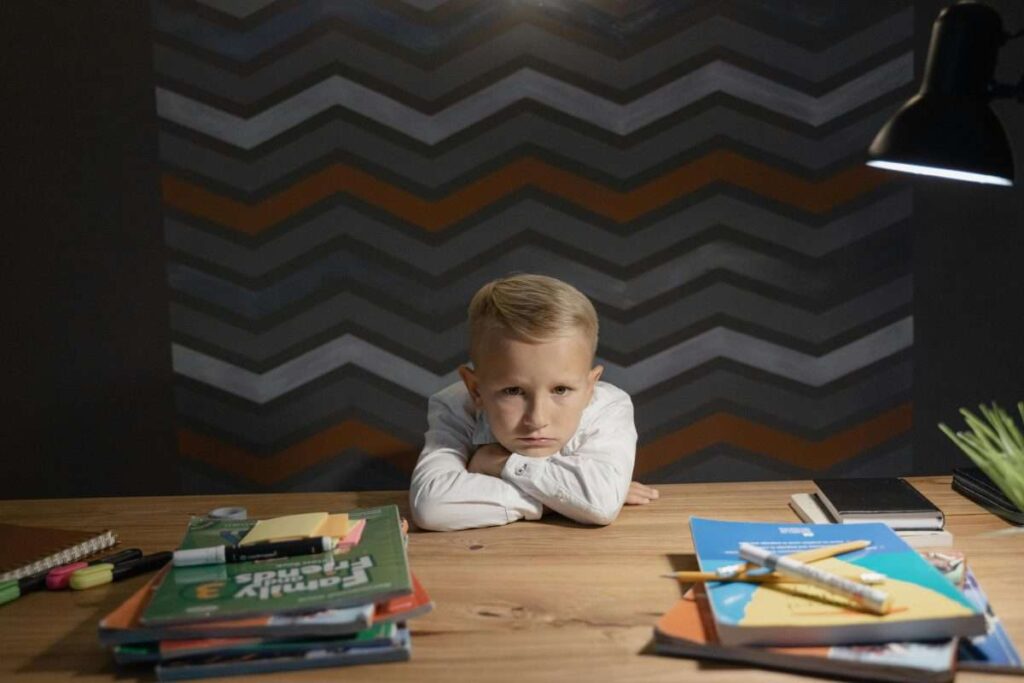“We’re in a crisis of social connection. We really are.” Dr. Milena Batanova is unequivocal on the current state.
As Director of Research and Evaluation at Making Caring Common, Harvard Graduate School of Education, Batanova has spent years analyzing factors that influence youth development and well-being.
During an interview with Lianne Castelino for Where Parents Talk, Batanova distills the science behind the growing disconnect between social media, achievement pressure, and genuine human connection—and what it means for kids and their parents.
An Invisible Epidemic
While “epidemic” often applies to sudden health crises, the crisis of loneliness is different, Batanova explains, but no less dangerous.
“The U.S. Surgeon General recently compared the health impacts of loneliness to smoking 15 cigarettes a day,” she shares. “When I first heard that, I thought of loved ones who smoked and were lonely. It gave me a moment of deep concern—and gratitude—that they were still around.”
While loneliness surged during the COVID-19 pandemic—with 61% of young adults and 51% of mothers of young children in the U.S., reporting feelings of isolation—it hasn’t gone away. Even as the world has “reopened,” many individuals, especially youth, remain disconnected.
Kids Are Talking—Who is Listening?
Dr. Batanova references a UK study in which adolescents cited low self-confidence, poor communication, and societal pressure as key drivers of loneliness. And when asked what would help, their responses were both simple and profound: learning to love themselves, staying positive, and forgiving others.
“These aren’t just mental health skills,” Batanova notes. “They’re virtue-based skills—deep, profound ways of being in the world.” What’s more, a national study by her team at the Making Caring Common Project, revealed that only 30% of teens felt they could turn to their parents for support.
“That’s a wake-up call,” says Batanova, who is the mother of a young son. “So many kids feel like their parents won’t understand them or will just try to fix things instead of empathizing. Empathy isn’t about putting yourself in their shoes—it’s walking alongside them.”
The Technology Paradox
With constant access to communication tools, why are we more disconnected than ever?

“It’s not surprising,” says Batanova. “We’re losing time, motivation, and skills. We’ve seen a real decline in socializing—especially in person—and it’s affecting how young people relate to each other.”
Teens report feeling socially awkward since the pandemic and often prefer texting over face-to-face interaction. Yet, many still crave deeper, more authentic relationships.
The Crushing Weight of Achievement
One of the most striking insights from Batanova’s focus groups with teens was the recurring theme of pressure—pressure to succeed, to be “worthy,” to stand out.
 “They tied their self-worth directly to material success,” she says. “Social media plays a part, but they pointed the finger at adults—parents and teachers—for reinforcing those expectations.”
“They tied their self-worth directly to material success,” she says. “Social media plays a part, but they pointed the finger at adults—parents and teachers—for reinforcing those expectations.”
It’s a stark reminder for parents to reflect on their own behaviours.
“Are we modelling what really matters?” Batanova asks. “Are we emphasizing connection, or are we too focused on achievement?”
What Parents Can Do
Batanova offers practical guidance for families looking to counter loneliness and foster connection:
-
Look for signs: Withdrawal, irritability, prolonged sadness, or anxiety may point to deeper issues.
-
Start conversations: Ask about friendships, feelings, and daily experiences—not just school performance.
-
Practice active empathy: Listen without judgment or the urge to “fix.”
-
Model connection: Show that relationships matter more than accomplishments. Put down the phone. Make eye contact. Share stories.
-
Prioritize quality time: Even small, consistent moments together can foster security and belonging.
“We all mean well as parents,” Batanova continues. “But sometimes we forget what really matters. My own 5-year-old will call me out when I’m on my phone at the dinner table. And I listen, because he’s right. It’s about our own growth, too.”
A Call for Cultural Change
Beyond families, Batanova stresses the need for systemic support—better public education on emotional health, policies that prioritize well-being, and a cultural shift away from hyper-individualism.
“We need to focus on togetherness,” she says. “We’re still so fixated on achievement and superficial success. But the future our kids deserve is one built on connection, care, and community.”
Related links
Related articles
Key Factors in Navigating Your Child’s Mental Health with Dr. Christine Crawford
Overcoming Toxic Achievement Culture and Why Mattering Matters


